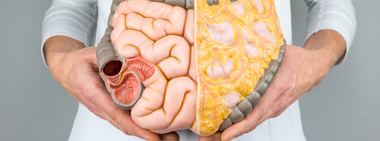Should you worry about your child’s cholesterol?

A 2019 study found that statins can markedly help a specific population of children.
I highlighted those keywords because this “specific population” represents fewer than 1 percent of kids.
For the vast majority of children a lifetime of statins is far from ideal. But this study analyzed how statins could help kids who have familial hypercholesterolemia (FH). These are children with a chromosomal defect that leaves their bodies incapable of removing bad cholesterol from their blood, putting them at very high risk of developing heart disease, even in early adulthood. The big news is that statins can slash that risk. Researchers found that only one percent of children with FH started on statins experienced a heart attack or other heart issue before age 40 as compared to 26% of their FH-affected parents (for whom statins were not available when they were young).
That’s a HUGE improvement in outcome that underscores the massive health impacts of reducing cumulative cholesterol exposure -- and another reminder that addressing elevated lipid levels in kids is important.
So what about children who have high cholesterol but don’t have FH? There’s absolutely no reason those kids should automatically take statins. After all, if the high cholesterol is due to the downstream effects of a poor diet, the first step should be to change the food. Especially since relegating a child to a lifetime of medications is not without consequences or risk.
Perhaps the biggest concern is that although statins can make cholesterol profiles perfect, they are associated with an increased risk of developing diabetes. Not exactly a great trade-off. And there may be other long term effects that we have not yet discovered (good or bad). While statins were found to be generally safe for the kids with FH, we don’t really know what happens to people who take these drugs for 80-plus years.
So, like for many adults with non-FH high cholesterol, dietary and lifestyle interventions should be the first step for non-FH kids who need to improve their lipid numbers. By the way, Step One products are a great option for all children with high cholesterol. The foods not only supply clinically meaningful levels of plant sterols, but are also made from whole food ingredients and supply critical nutrients often missing in children’s diets, (like fiber and healthy fats). We need to establish healthy eating habits early on. The way your child eats in their youth correlates to how they’ll eat as an adult.
When and how often should you have your child’s cholesterol checked? The first screening for cholesterol for most kids doesn’t need to happen until around age 10. After that, a test every five years is usually sufficient. But if there is a family history of high blood cholesterol, heart attack, or stroke, it may be appropriate to test kids as young as 2. Your pediatrician is in the best position to determine the appropriate screening schedule for your child.
And, when should you be concerned about the results? Here’s the National Institute of Health’s guide to healthy levels of cholesterol for anyone under the age of 19:
|
Type of Cholesterol |
Healthy Level |
|
Total Cholesterol |
Less than 170mg/dL |
|
Non-HDL |
Less than 120mg/dL |
|
LDL |
Less than 100mg/dL |
|
HDL |
More than 45mg/dL |
Cholesterol levels outside of these norms should prompt a discussion with your pediatrician about dietary management and follow-up testing for your child. Familial hypercholesterolemia is suspected when a child’s LDL is over 190 mg/dL or over 160 mg/dL in the setting of a family history of premature coronary disease. If a parent has a documented FH gene mutation, LDL levels over 130 mg/dL would be concerning. The diagnosis of FH in a child is confirmed with genetic testing.

Tested & Proven Results.
- Cardiologist formulated
- Supported by over 500 publications
- Clinically-proven, in a double-blind randomized trial with Mayo Clinic and The University of Manitoba
80% of participants lowered their cholesterol in just 30 days. With just two servings per day, Step One Foods offers a proven-effective way to naturally lower LDL (bad) cholesterol.
Get heart health tips and articles like this, delivered right to your email.
New articles every week.
You may also like...

Insulin Resistance, Prediabetes and Type 2 Diabetes. Part 3: Fat in All the Wrong Places

Insulin Resistance, Prediabetes and Type 2 Diabetes. Part 2: Chronic Calorie Excess

You don’t need to avoid foods with cholesterol…except for these


